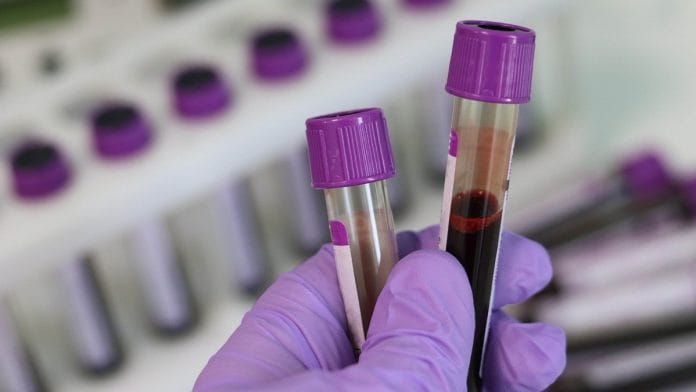New Delhi: Laboratories of most government medical college hospitals in India do not offer important diagnostic tests, according to a study that says they found 198 NABL-accredited labs across 555 government medical colleges.
The National Accreditation Board for Testing and Calibration Laboratories (NABL) is a government-recognised body that accredits all testing laboratories.
The study was conducted by researchers from PGIMER-Chandigarh, Government Medical College Baramati, and Manipal Hospital Yeshwanthpur Bangalore. It was published last month in the Archives of Pathology & Laboratory Medicine journal.
Over the pandemic years, the researchers seek to highlight, the majority of NABL accreditations were given for Covid testing labs, with facilities for various other standard tests being unavailable in most medical colleges.
The study points out that the absence of labs not only forces patients to shell out money at private ones, but medical students also lose out on the opportunity to gain the requisite lab-related skills.
Broadly, three categories — molecular pathology (193), microbiology (54 ) and biochemistry (24) — of labs were found in the colleges studied. Other categories included hematology and immunohematology (19), histopathology (13 ), cytopathology (11), flow cytometry (7), clinical pathology (11 ), cytogenetics (3), and genetics (1).
The considerably high numbers of molecular pathology and microbiology laboratories is because of the Covid pandemic as the thrust was on having facilities that meet the standards to ensure reliable SARS-CoV-2 reports, the study says.
“Before the Covid pandemic, there were probably just about 10 to 20 NABL microbiology
or molecular pathology labs across the country,” Dr Sanjay A. Pai of Manipal Hospital–Yeshwanthpur, one of the authors of the study, told ThePrint.
Pai admitted that many hospitals, both government and private, expect patients to get diagnostic tests done from private diagnostic centres. “This means that the patients then have to pay out of their pockets. Moreover, what about the students at those colleges? They end up graduating without having any experience with basic diagnostic tests,” he said.
NABL accreditations are about achieving the minimum safety standards, he added. “Although this cannot be done overnight, having relevant data can at least help the government make relevant policies to address the issue,” Pai said.
Common facilities
As for keeping a balance when it comes to the facilities of laboratories, the study suggested that the National Medical Commission — the apex body regulating medical education and professionals — and scientific bodies need to work with the Ministry of Health and Family Welfare.
Given that laboratory instruments are usually expensive and often need to be replaced, the study suggested building common facilities, which can be used by all medical institutes located in proximity.
“Thus, one hospital could perform and offer flow cytometry services to other teaching hospitals in the vicinity and another could offer specialised coagulation services, etc,” the study says.






